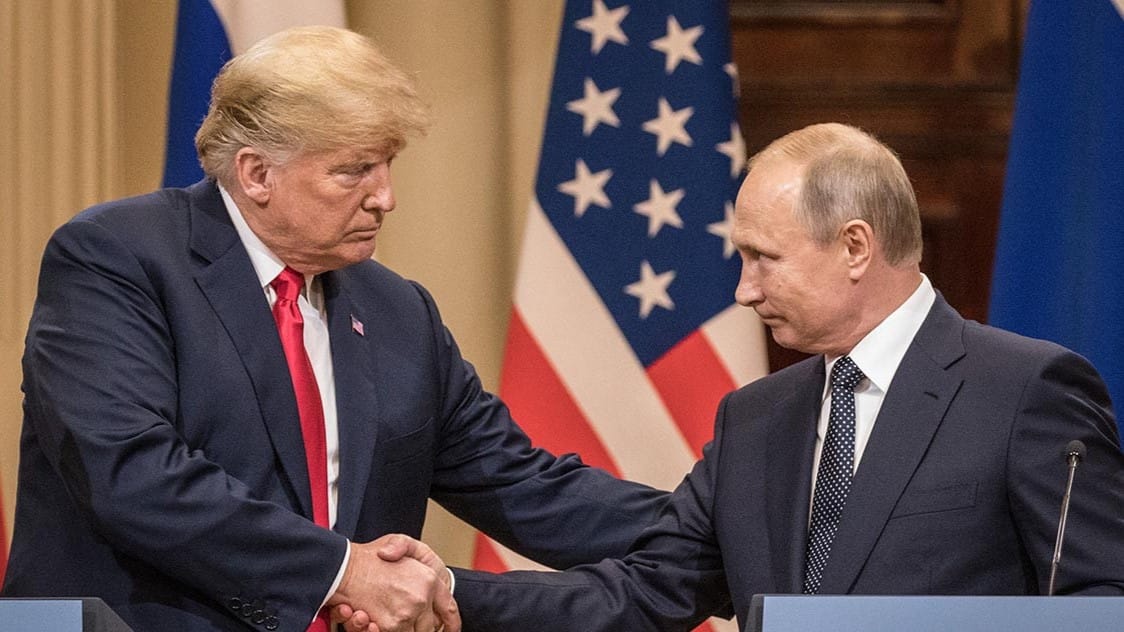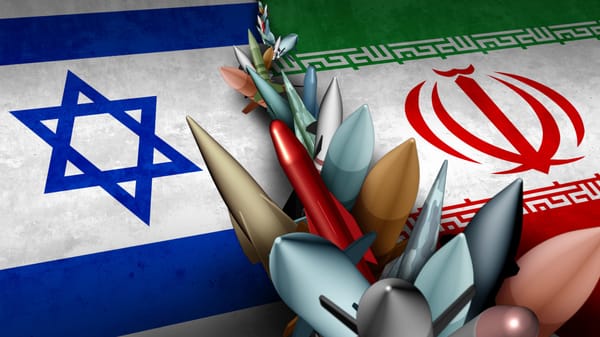Donald Trump and the Shadow of Vladimir Putin

The Clash of Interpretations – Democracy as Victim or Nationalism as Triumph?
Seventy-five days into Donald Trump’s second presidential term have been so eventful that the entire world paused to reassess the role of the United States in the global order. Two distinctly different Russian political figures, Garry Kasparov and Alexander Dugin, offered fundamentally opposite interpretations of these events. Their debate vividly mirrors today’s global ideological divisions and highlights how Trump's America has become an arena for battling symbols, ideologies, and archetypes.
“Putinism” Under the Stars and Stripes
Chess champion and prominent dissident Garry Kasparov, in his article for The Atlantic titled "The Putinization of America," paints a disturbing picture. He argues that Donald Trump is systematically dismantling American democratic institutions, seemingly guided by "Putin’s playbook." The symbolic heart of this dismantling process has become the Department of Government Efficiency (DOGE), led by Elon Musk. Under Musk’s leadership, federal agencies’ budgets were slashed by $42 billion in mere months.
Kasparov draws parallels with 1990s Russia, when oligarchs leveraged privatization to seize control of the country's key institutions. According to Kasparov, Musk behaves similarly, becoming "America’s leading oligarch," eliminating regulatory bodies designed to protect the state and public interests.
Kasparov’s concerns are supported by institutional changes and concrete actions. Trump's political alignment with Putin, previously merely provocative rhetoric during his first term, has now shifted to practical steps. Notable instances include the conspicuous absence of the U.S. Secretary of Defense from the Ramstein Group meeting and Trump's call for Ukraine to surrender rights to its natural resources in exchange for a ceasefire—actions that move beyond rhetoric into direct emulation of Putin’s political strategies.
Kasparov explicitly ties these actions to debts owed for Kremlin assistance during the 2016 campaign, referencing the Mueller Report. He warns that the Capitol attack in 2021 was the first major symptom of a systemic crisis he predicted back in 2017. Now, according to Kasparov, the "chess match for America's soul is nearing its end." Trump has sacrificed the "queen of democracy," reducing the nation from a player to a mere piece on someone else’s board.
For Kasparov, America, once an undisputed global leader, is increasingly mirroring Putin’s Russia. Democracy is being eroded, replaced by autocracy and mafia-like oligarchy. Leadership has given way to dictatorship, institutions have been replaced by a personality cult and "digital efficiency." He directly compares Trump to Lukashenko, cautioning that America is becoming hostage to extractive policies designed to redistribute wealth to serve the narrow interests of an elite group.
Trump as the Tsar of a New Era
Alexander Dugin, a controversial figure representing the extreme wing of Russian nationalism, interprets events quite differently in an interview with CNN’s Fareed Zakaria and in his book The Donald Trump Revolution: Order of Great Powers. For Dugin, Trump's second term represents an epochal shift, the triumph of sovereignty and anti-globalism. In Dugin’s view, Trump has ceased to be a "bastion of liberal globalism," becoming instead the "sovereign monarch of America," acting based on national rather than liberal global interests.
Dugin sees Trump's initiative to seize Canadian territories and Greenland as a "symbolic step towards a truly sovereign empire." Trump's demands for Ukraine’s natural resources in exchange for peace are viewed by Dugin as manifestations of absolute realism. "Ukraine’s sovereignty is lost," says Dugin, and to him, this is beneficial: Ukraine becomes merely a pawn in the "game of great powers." For Dugin, Trump is an "ideological twin brother of Putin," who, together with Russia, will oppose a Europe mired in liberalism.
Dugin applauds Trump's digital governance style, his assault on democratic institutions, and concurrently his "traditional patriotism." According to Dugin, Trump and Putin should form an alliance that would break the "globalist order." A sovereign America and sovereign Russia together will become the foundation of a new global axis against the liberal West.
Politics as Alchemy
These two radically different interpretations of Trump take us into the symbolic depths of politics. Both narratives are based not on rational analysis but on deep archetypes, fears, and hopes. Kasparov views Trump as Putin’s "pupil" and puppet, fearing the loss of freedom and American democratic achievements. Conversely, Dugin crowns Trump as the "tsar of a new era," hoping for the global triumph of an illiberal order.
These interpretations shape reality in the minds of different audiences rather than merely describing it. Kasparov’s liberal world is terrified at America’s loss of democratic identity. Dugin’s nationalist and fascist world enthusiastically welcomes a new era where strength supersedes democracy and leaders are more important than institutions.
America at a Crossroads
Despite reaching diametrically opposed conclusions, both sides agree on one point: Donald Trump’s America is increasingly resembling Putin’s Russia. For some, this is a catastrophe; for others, it’s a long-awaited transformation.
Kasparov's concerns are not unfounded. Democracy, having lost its checks and balances, becomes merely a facade for the powerful. Russia’s example should have served as a warning, but the lesson seems unlearned. At the same time, Dugin simplifies reality, ignoring the limitations and internal contradictions inherent in Trump's agenda.
Trump continues to exploit crowd instincts, and as British political scientist Mark Galeotti says, "Putin is helping Trump become the worst version of himself." The fate of Ukraine, decisions regarding Canada and Greenland, and the reshaping of American institutions—all these are links in a single chain. The American dream is gradually transforming into a techno-authoritarian fantasy.
The Choice is America’s
The United States has reached a bifurcation point. America's future is being decided today—it will either become a victory of democratic awareness and institutional strength or a triumph of authoritarian nationalism, where institutions serve not the people but the ruling leader and his entourage.
Kasparov and Dugin provide two contrasting mirrors reflecting the face of a new America. Reality is always more complex than any reflection. However, understanding which interpretation proves prophetic is possible only in practice.
Today, America is clearly sliding from democratic ideals toward a harsh realism of power. The symbolic rivalry between these two Russian interpretations is becoming a genuine battle for the soul of America and its place in the world.





